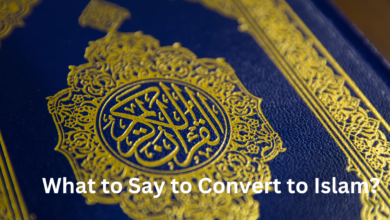

In the realm of Islamic terminology, the acronym “SWT” holds great significance. It is an abbreviation that encapsulates profound reverence and respect for the Almighty. Muslims use this acronym as a reminder of the greatness of Allah and as an expression of their humility and devotion. The letters “SWT” stand for “Subhanahu Wa Ta’ala,” which translates to “Glorified and Exalted is He” in English. This phrase is frequently employed when referring to Allah, emphasizing His absolute perfection, transcendence, and majesty.
The Significance of Subhanahu Wa Ta’ala (SWT):
In Islam, Allah is believed to be beyond human comprehension and imperfections. The phrase “Subhanahu Wa Ta’ala” serves as a means to acknowledge and express the inherent divinity, purity, and supremacy of Allah. Muslims use this phrase to praise Him and to highlight His attributes that are beyond human understanding. By adding “SWT” after mentioning Allah’s name, believers aim to reinforce their recognition of His limitless greatness and to avoid any form of disrespect or misunderstanding.
Understanding the Components:
The phrase “Subhanahu Wa Ta’ala” is composed of two parts: “Subhanahu” and “Wa Ta’ala.” Each part holds a unique significance in emphasizing Allah’s attributes.
- Subhanahu (سبحانه): This term is often translated as “Glorified is He” or “Exalted is He.” It signifies that Allah is far above any imperfections, blemishes, or shortcomings. By uttering “Subhanahu,” Muslims affirm that Allah’s nature is pure and perfect, free from any human-like qualities or limitations.
- Wa Ta’ala (وتعالى): Translated as “and Exalted,” this phrase further amplifies the idea of Allah’s elevated status. It underscores that He is above everything in the universe and that His magnificence cannot be equaled by anyone or anything.
Using SWT in Various Contexts:
Muslims use “SWT” not only when mentioning Allah’s name but also when referring to any of His attributes, teachings, or actions. Whether reciting Quranic verses, reading Hadith (sayings of the Prophet Muhammad), or engaging in supplications, the inclusion of “SWT” serves as a constant reminder of Allah’s sublime nature. It helps believers maintain a deep sense of humility and reverence, fostering a connection with the Divine.
Cultivating a Spirit of Humility:
The usage of “Subhanahu Wa Ta’ala” plays a vital role in fostering a spirit of humility in the hearts of believers. Recognizing Allah’s exalted status and infinite wisdom encourages Muslims to approach life with a sense of awe and submission. This humility extends to all aspects of their existence, from worship and prayer to interpersonal relationships and daily conduct.
A Reminder of Tawheed:
Tawheed, the fundamental Islamic concept of monotheism, emphasizes the oneness of Allah. By invoking “SWT,” Muslims reiterate their belief in the uniqueness and incomparability of Allah. It serves as a constant reminder that there is no god but Allah and that all power, sovereignty, and authority reside solely in Him.
Conclusion:
In the intricate tapestry of Islamic theology and practice, “Subhanahu Wa Ta’ala” (SWT) stands as a profound expression of veneration and reverence for Allah. Through this phrase, Muslims endeavor to transcend the limitations of human language and thought to acknowledge the divine attributes of their Creator. By regularly using “SWT,” believers strive to remain connected to the source of their faith and to uphold the principles of humility, monotheism, and devotion that lie at the heart of Islam.
What does Swt mean in Islam?
“Swt” is an abbreviation for the Arabic phrase “Subhanahu Wa Ta’ala,” which is commonly used by Muslims when referring to Allah (God). It is a way to attribute greatness, holiness, and transcendence to Allah.
How is “Swt” used in Islamic texts?
In Islamic texts, “Swt” is often placed after the name of Allah to show respect and reverence. For example, instead of just saying “Allah,” Muslims might write or say “Allah Swt” to acknowledge Allah’s exalted status.
Why do Muslims use “Swt” when referring to Allah?
Muslims use “Swt” as a way to remind themselves and others of the majesty and greatness of Allah. It serves as a reminder that Allah is beyond human comprehension and is deserving of utmost respect and praise.
Is using “Swt” mandatory in Islamic communication?
No, using “Swt” is not mandatory in Islamic communication. It is a matter of personal preference and a way to demonstrate respect for Allah. Some Muslims consistently use “Swt” in their communication, while others may use it less frequently.
Can “Swt” be used in spoken communication?
While “Swt” is more commonly used in written communication, some Muslims also use it in spoken communication as a way to verbally express reverence for Allah.
Are there other similar abbreviations used in Islam?
Yes, there are other abbreviations used in Islam to show respect when referring to certain phrases. For example, “Sallallahu Alaihi Wasallam (S.A.W)” is used after mentioning the Prophet Muhammad to convey peace and blessings upon him.
Is using “Swt” a universal practice among all Muslims?
While the use of “Swt” is widely recognized and understood among Muslims, its usage may vary among different cultures and communities. Some Muslims may use it consistently, while others may use alternative forms to express the same reverence.
Can non-Muslims use “Swt”?
“Swt” is a specific Islamic practice, and its use is primarily among Muslims to express their devotion to Allah. Non-Muslims may not have the same religious connection to the term, so it is generally not used by those outside the faith.
Does “Swt” have a specific pronunciation?
“Swt” is an abbreviation for Arabic words and isn’t pronounced as a single word. It is understood when written and serves its purpose in written communication to denote Allah’s transcendence and holiness.
How does using “Swt” align with the broader teachings of Islam?
Using “Swt” aligns with the broader teachings of Islam by emphasizing the importance of recognizing Allah’s greatness and maintaining a sense of humility and reverence in the presence of the Divine. It reflects the core belief in the oneness of Allah and the unique attributes attributed to Him in Islamic theology.





